SEO terminology for AI search is having an identity crisis (and we need to talk about it)
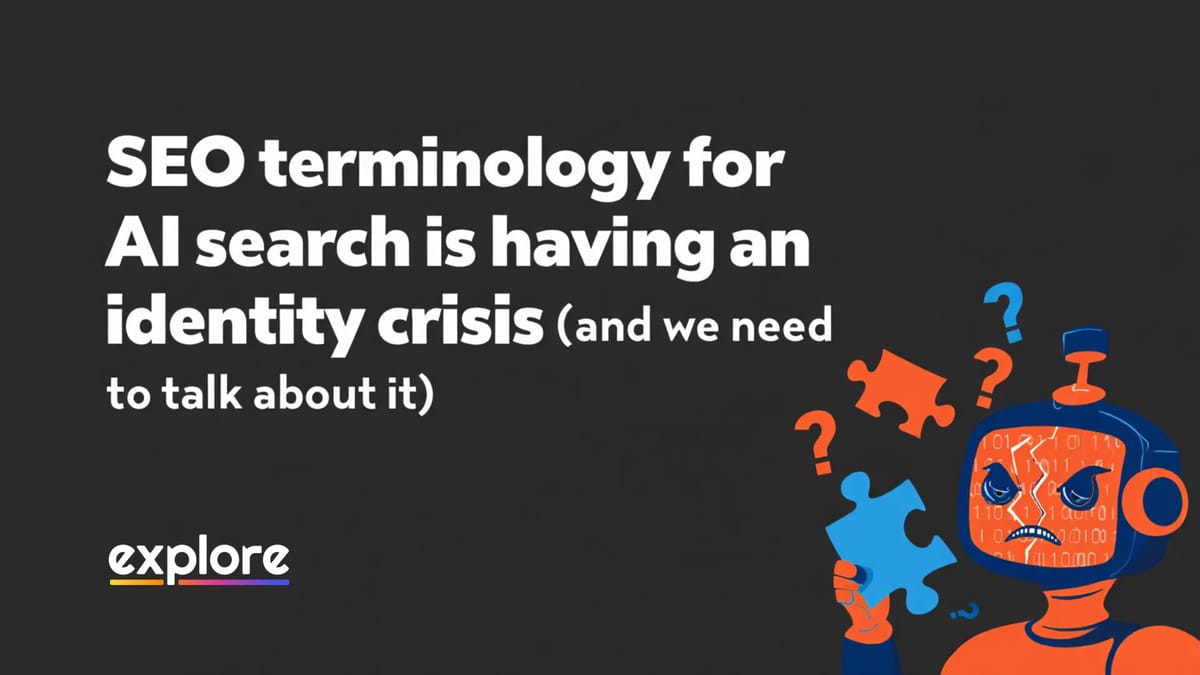
The SEO world is experiencing its most awkward phase since the incredible "webmaster" was a job title. We're optimizing our content for ChatGPT, Perplexity, and Google AI Overviews... but somehow, we can't agree on what to call this optimization process. GEO? AEO? LLMO? AI SEO? It's like watching an industry collectively struggle to name a baby... but in our team, we have settled on a specific term and we're gonna tell you about it!
Here's what actually matters: while we debate acronyms, 800% year-over-year growth in AI-sourced traffic is happening right now. Companies implementing these strategies are seeing 27% conversion rates from AI traffic (compared to a mere 2.1% from traditional search) and they're capturing 32% of their sales-qualified leads from AI platforms within weeks. The practice works... we're just terrible at defining it.
Let's untangle this terminology mess, figure out what SEO professionals are actually saying in 2025, and determine which terms will stick. Whether you call it GEO, AEO, or "that thing where ChatGPT mentions your brand," we need to understand it.

The taxonomy of confusion: every term explained
The AI search optimization landscape has more acronyms than a government agency. Here's what they all mean and where they came from...
GEO (Generative Engine Optimization): the academic frontrunner
GEO was born in the ivory tower and backed by venture capital. Six researchers from Princeton, Georgia Tech, IIT Delhi, and the Allen Institute for AI formally introduced "Generative Engine Optimization" in November 2023 through an academic paper. They defined it as "a novel paradigm to aid content creators in improving their content visibility in generative engine responses."
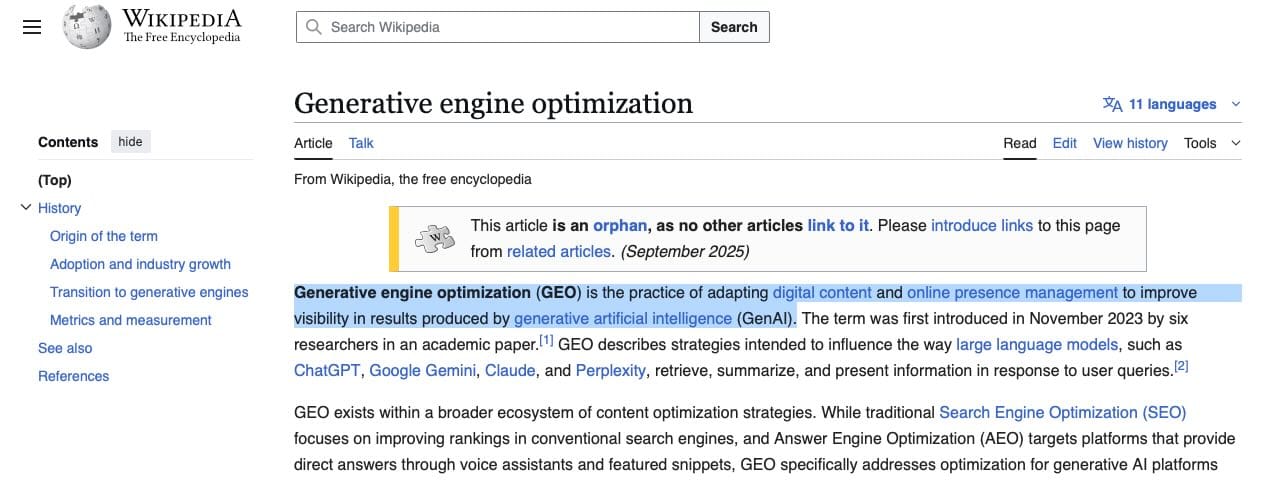
The research wasn't just theoretical. They tested 9 optimization methods on 10,000 queries and discovered that adding statistics, quotations, and citations could boost visibility by up to 40%, while traditional keyword stuffing actually performed 10% worse than doing nothing (yes - worse!!) This gave GEO immediate credibility, not simply marketing hype (Here at Explore... we care about ✨ d a t a ✨ ! 😌).
The term gained serious momentum when Andreessen Horowitz championed it in May 2025, calling it "the competition to get into the model's mind." When a top-tier VC firm adopts your terminology, the industry pays attention. Major platforms like Semrush, BrightEdge, and SE Ranking built entire product lines around "GEO," and virtually every SEO agency now lists it as a service offering.
AEO (Answer Engine Optimization): the OG with real staying power
AEO is the elder statesman of this terminology war. It emerged organically around 2014-2015 when Google introduced featured snippets, knowledge graphs, and "People Also Ask" boxes. The concept was simple: optimize content so search engines could extract direct answers, not just show blue links when asked to (let's face it - most people prefer an answer to a link.)
Unlike GEO, AEO never had a formal launch or founding paper. It evolved naturally as SEOs adapted to answer-focused search results. Now it's experiencing a second life as AI search engines do essentially the same thing: deliver direct answers instead of forcing users to click through ten links.
Platforms like Conductor and Ahrefs also sometimes use AEO terminology. The argument for AEO is straightforward: it's a broader umbrella term that covers featured snippets, voice search, and AI-generated responses. It's inclusive rather than trendy.
LLMO (Large Language Model Optimization): the technical alternative
LLMO was coined by Jina.ai in December 2022, right after ChatGPT launched. Their blog post was provocatively titled "SEO is Dead, Long Live LLMO." Bold claim, terrible timing (it turned out SEO wasn't dead, just evolving... but that's another debate and we're literally writing another article on that hot topic right now!)
LLMO is more technical and specific than the alternatives. It focuses explicitly on optimizing for large language models rather than the broader concept of "generative engines" or "answer engines." Ahrefs uses LLMO extensively, particularly in their technical content aimed at sophisticated SEO practitioners who understand the underlying AI architecture.
The downside? LLMO is intimidating to non-technical stakeholders. Try explaining to your CMO that you need budget for "Large Language Model Optimization" versus "optimizing for AI search" and you'll see the problem immediately... but try it first and let us know! 😉
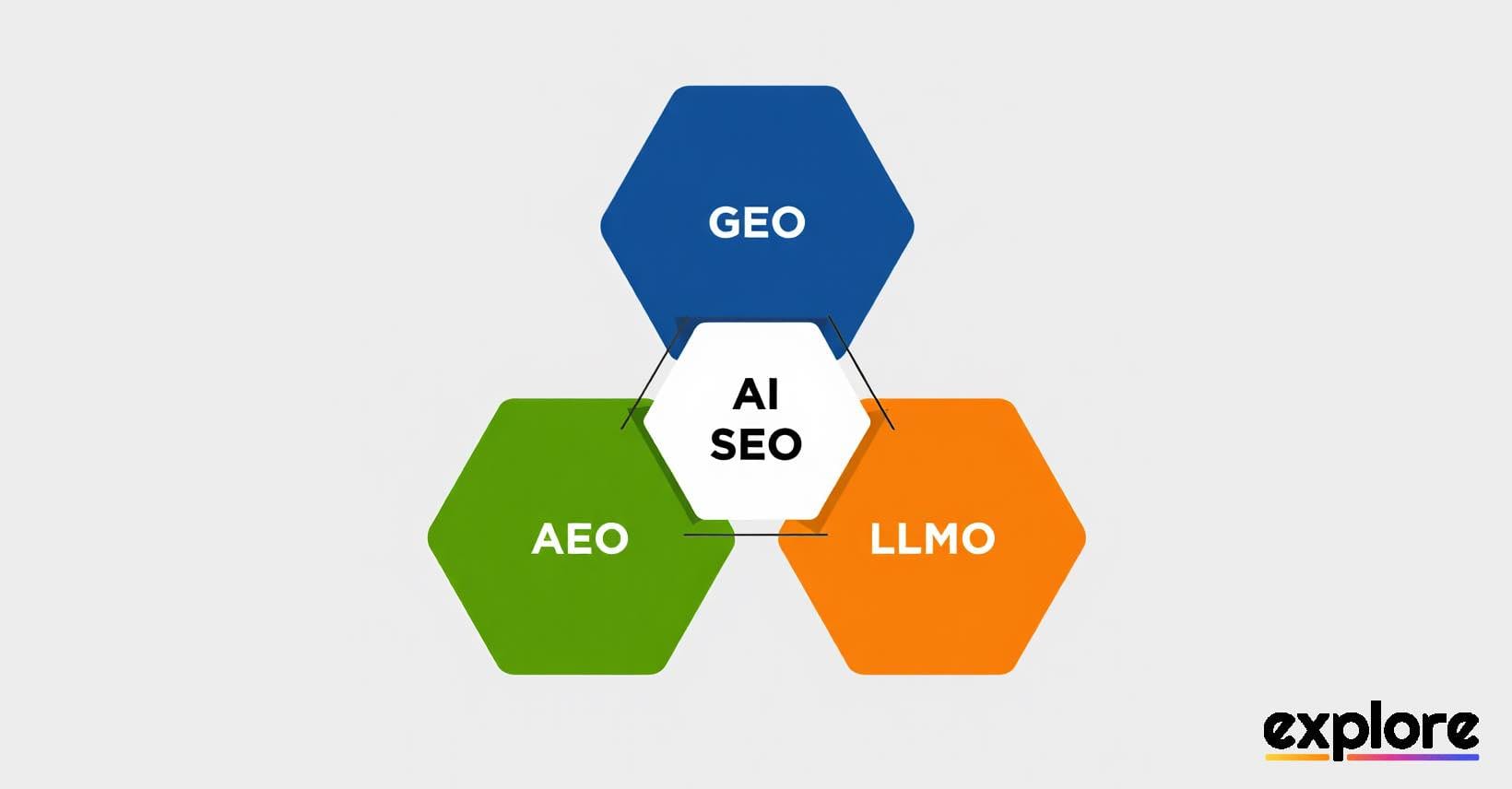
AI SEO, AIO, and the generic alternatives
Some companies avoid acronym proliferation entirely. Moz focuses on "optimizing for AI Overviews" without creating new category names. Surfer SEO simply calls their product "AI Tracker." HubSpot alternates between "AI search optimization" and "generative engine optimization" depending on the audience.
AIO (AI Optimization) appears in product names like "Semrush Enterprise AIO" but rarely in content or conversation. It's too generic, AI Optimization could mean anything from chatbot training to image generation.
The generic "AI SEO" approach has merit: it's immediately understandable, avoids jargon, and acknowledges this is still fundamentally search optimization. As one Search Engine Journal contributor put it: "All of it is semantics to be honest."
So, what is the industry actually calling this?
Let's cut through the noise with data. What are SEO professionals, tool vendors, and agencies actually saying?
Tool companies have voted with their product names
The major SEO platforms have made their choices:
- Team GEO: Semrush (AI SEO Toolkit tracks "generative engine optimization"), BrightEdge (enterprise AI Catalyst platform), SE Ranking (dedicated GEO tool), Conductor (though they hedge with "AEO/GEO/AIO"), First Page Sage, and most specialized startups like Profound, Otterly AI, and RankScale.
- Team AEO: Conductor (primary positioning: "#1 AEO platform"), Ahrefs (increasingly using AEO in 2025 content alongside LLMO).
- Team "Let's Not Make This Weird": Moz (focuses on specific features like "AI Overviews optimization"), Surfer SEO (straightforward "AI Tracker"), various smaller tools.
The pattern is clear: enterprise platforms and venture-backed startups overwhelmingly chose GEO. It signals innovation, aligns with academic research, and creates clear product differentiation.
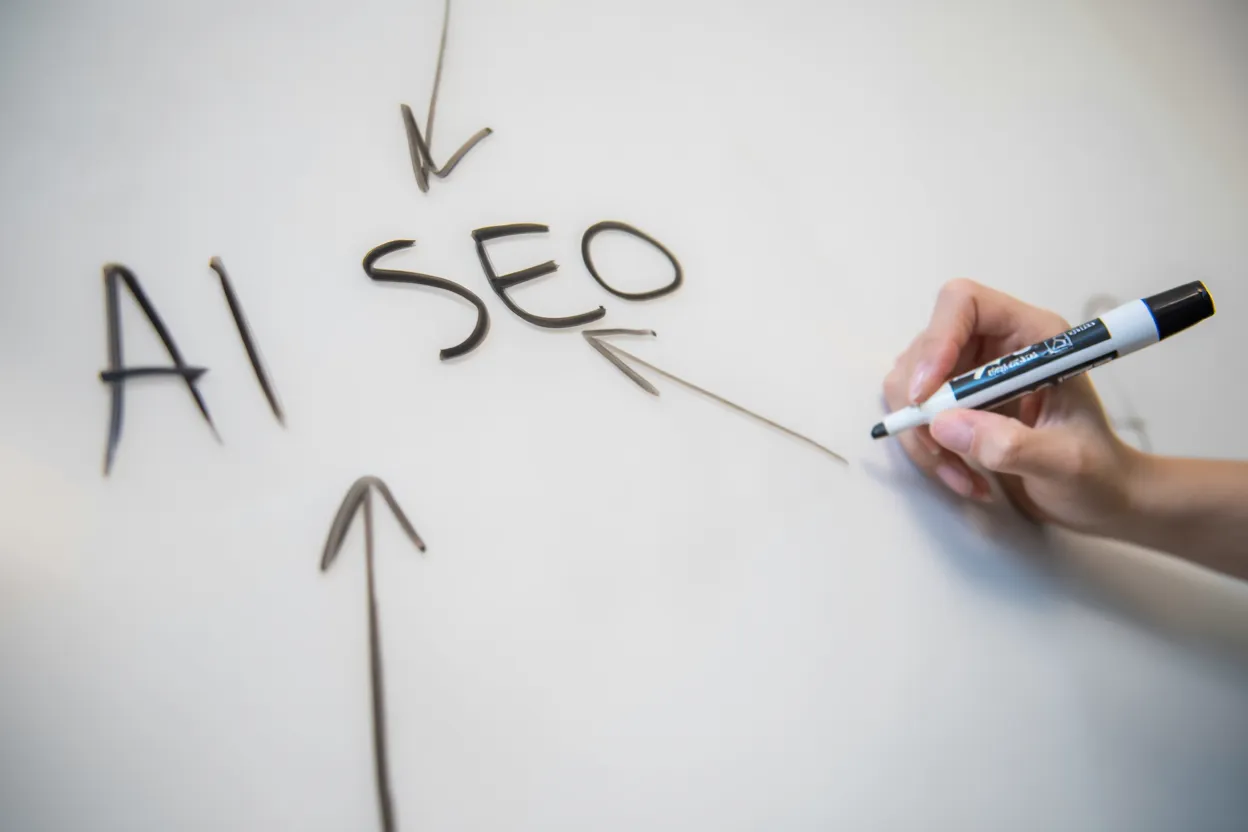
Agencies have reached near-consensus
Walk through the service pages of top SEO agencies and you'll find remarkable uniformity. Go Fish Digital, iPullRank, First Page Sage, Intero Digital, Siege Media, Omniscient Digital, Obility, NoGood, Epic Slope Partners, and dozens more all use "Generative Engine Optimization (GEO)" as their primary terminology.
This isn't coincidental. Agencies need to sell these services, which means the terminology must be:
- Distinct enough to justify new project scopes and budgets
- Credible enough to withstand CFO scrutiny
- Specific enough to differentiate from traditional SEO offerings
GEO checks all three boxes. AEO works too, but sounds older. LLMO sounds too technical for most clients. If right now you're thinking there are broader lessons to be learned surrounding naming new products and emergent technology... well yep, you're right. (And if that sounds like an interesting article to you, let us know! We have a LOT of experience naming new products here 🙂↕️)
The great Google pushback
Here's where it gets spicy. In August 2025, Google's John Mueller publicly criticized the acronym proliferation:
"The higher the urgency, and the stronger the push of new acronyms, the more likely they're just making spam and scamming."
August 2025 - John Mueller
Google has good reason to be defensive as they want SEO to evolve within their ecosystem, not fragment into new disciplines they don't control. Their position is essentially: "This is still SEO, you're just optimizing for different features."
Industry response was mixed. Some agreed these are just new SEO tactics. Others pointed out that when success metrics fundamentally change from "rankings and clicks" to "citations and zero-click visibility," maybe new terminology is justified. From our viewpoint, this isn't a scam. This is an entirely new way people are finding information and answering their questions, and you'd be foolish to be left behind or discredit AI search as 'fringe behaviour' (see our previous stats on the insane growth AI search has experienced in just the past year!)
The verdict: what should you actually call this?
After analyzing academic research, tool platforms, agencies, publications, and industry surveys, here's what's clear:
GEO (Generative Engine Optimization) is winning the terminology war, particularly among:
- Enterprise software vendors building dedicated platforms
- Venture-backed startups in this space
- SEO agencies selling these services
- Forward-looking marketing publications
- B2B SaaS companies adopting these practices
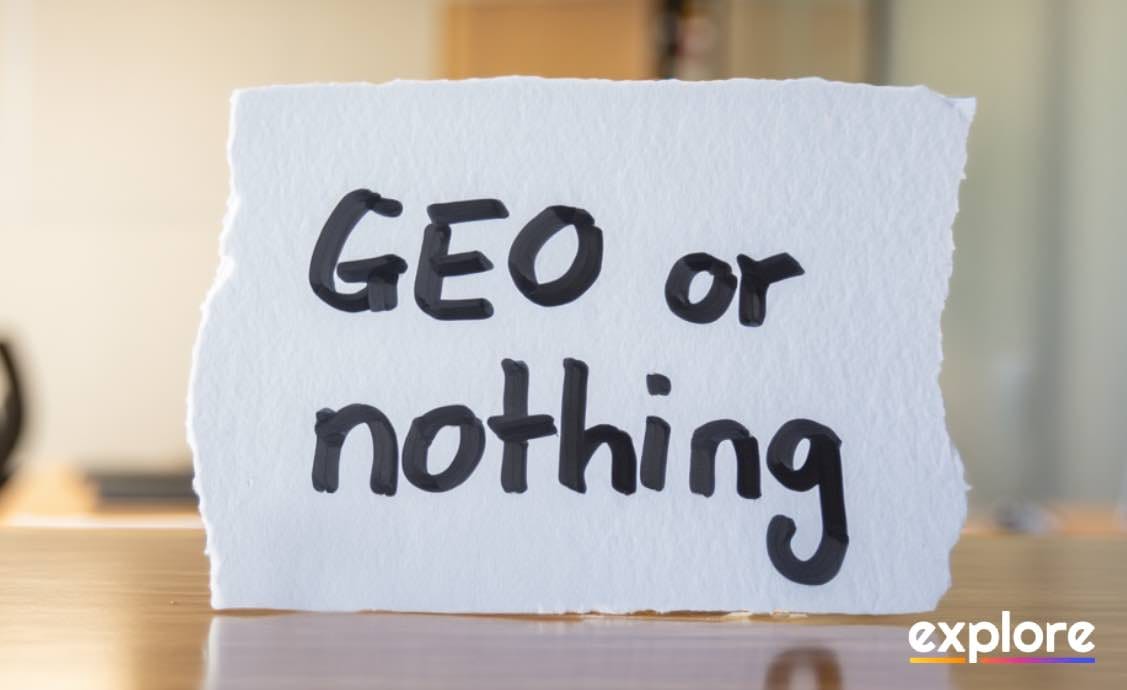
AEO (Answer Engine Optimization) remains strong among:
- Platforms emphasizing continuity with existing practices
- Companies that started optimizing for featured snippets years ago
- Those who prefer less trendy, more descriptive terminology
- Audiences that appreciate broader historical context
"AI search optimization" or "AI SEO" works well for:
- Client-facing communications with non-technical stakeholders
- General marketing content aimed at beginners
- Companies avoiding acronym proliferation
- Those emphasizing this is an evolution of SEO, not a replacement
The smartest approach? Use multiple terms contextually. Say "GEO" when discussing LLM citations specifically, "AEO" when including voice search and featured snippets, and "AI search optimization" when talking to executives who zone out at acronyms.
The practical takeaway: stop debating, start optimizing
Here's the uncomfortable truth: while the SEO industry argues about acronyms, smart companies are capturing market share.
The techniques work - regardless of what you call them:
- Add statistics, quotations, and citations to key content (40% visibility improvement)
- Implement comprehensive schema markup (FAQ, Article, HowTo, Product)
- Create conversational, answer-focused content
- Build E-E-A-T signals through author credentials and expert positioning
- Optimize for Reddit presence (especially for Perplexity visibility)
- Track performance across multiple AI platforms
Call it GEO if you want venture capital backing and enterprise software budgets. Call it AEO if you want to emphasize continuity with existing optimization practices. Call it AI search optimization if you're explaining this to your boss who barely understands what SEO means.
Just don't call it "something to worry about later." The 800% growth in AI-sourced traffic isn't slowing down. Companies implementing these strategies are seeing 27% conversion rates while you're still Googling "GEO vs AEO."
The terminology will continue evolving. More companies will enter the market, more tools will launch, and inevitably, someone will try to coin the next acronym. But the underlying practice; optimizing content so AI engines cite, reference, and recommend your brand... is here to stay, regardless of what we call it. 🫳🎤



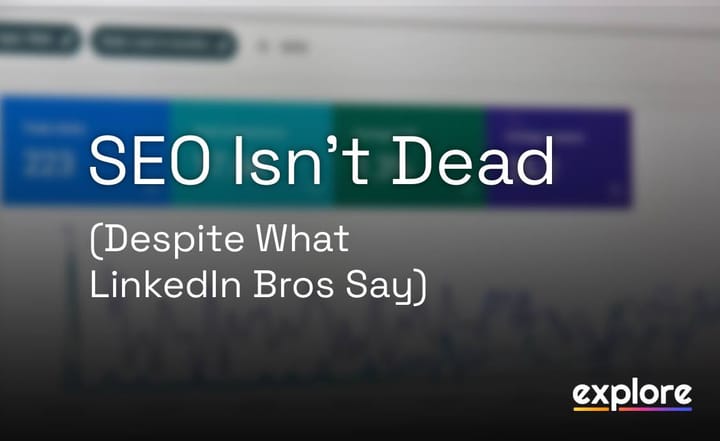

Comments ()